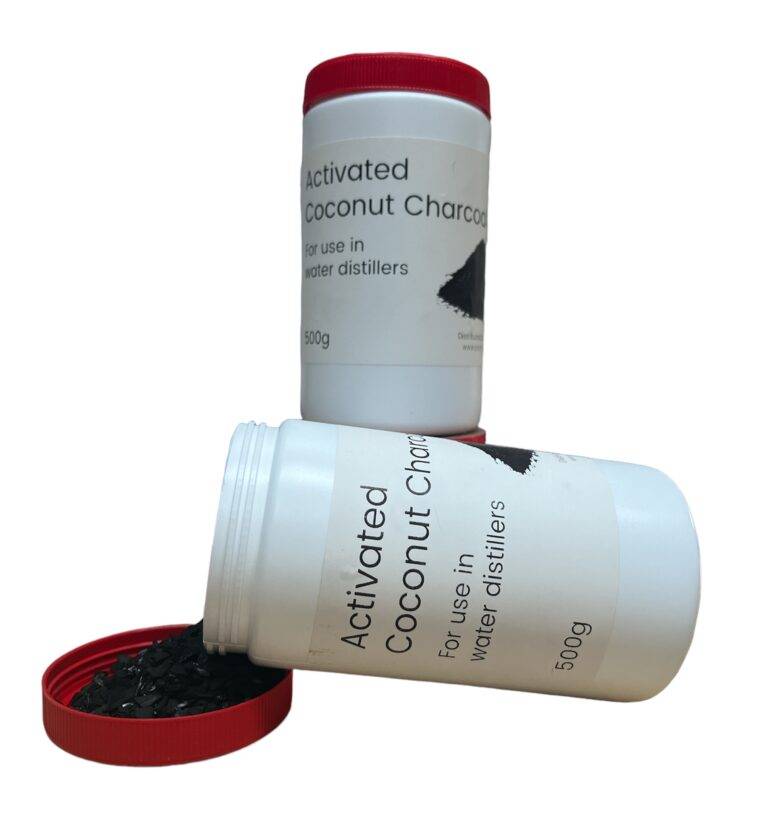Activated charcoal consists of small, black beads or a solid black porous sponge. It is used in water filters, medicines that selectively remove toxins, and chemical purification processes.
Activated charcoal is carbon that has been treated with oxygen. The treatment results in highly porous charcoal. These tiny holes give the charcoal a surface area of 300- 2,000 m2/g, allowing liquids or gases to pass through the charcoal and interact with the exposed carbon. The carbon absorbs a wide range of impurities and contaminants including chlorine, odours and pigments.
The most common everyday use of activated charcoal is to filter water. It improves water clarity, diminishes unpleasant odors, and removes chlorine.
It will filter:
- Chlorine
- Chloramine
- Tannins
- Phenol
- Some drugs
- Hydrogen sulfide and some other volatile compounds that cause odors
- Small amounts of metals, such as iron, mercury, and chelated copper

Reviews
There are no reviews yet